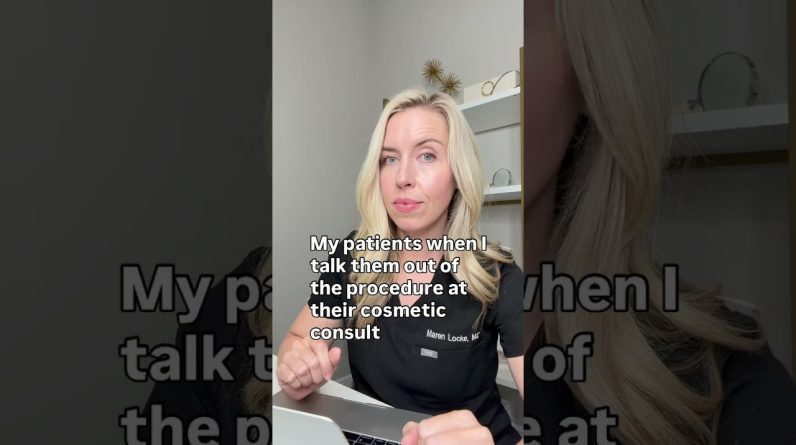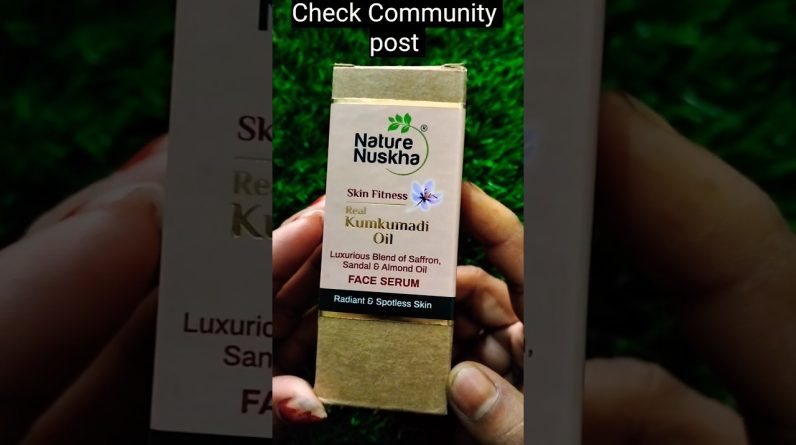Atopic Eczema is itchy, inflamed and red skin. Substances that can trigger this reaction vary from person to person. depending on disease severity.
Atopic eczema, its symptoms and possible causes, as well as the different treatment options available to people, depending on disease severity.
Atopic Eczema | Eczema is itchy, inflamed and red skin
This is targeted towards individuals who may be suffering from the symptoms of atopic eczema and/or those who are interested in gaining a better understanding of the disease. Always consult a medical professional before seeking treatment.
Hi, everyone meet john for the past few days. His hands have been covered with red and discolored skin patches john decides to go, meet his family doctor doctor. Can you take a look at my skin? I don’t know what happened.
It has been itchy all week. It seems like you have atopic eczema. What’s that? Eczema is a group of conditions that cause the skin to become itchy, inflamed and red. The most common form is atopic eczema, also known as atopic dermatitis.
Am i contagious?
Am i contagious? Is it serious? This condition is not contagious and is actually very common. The amount of people with atopic eczema in canada alone is higher than the worldwide average about 10 to 20 percent.
Of the population has some form of atopic eczema. The severity varies from person to person and, if left untreated, it can worsen and be prone to other infections, known as secondary infections. Let’s take a closer look.
Healthy skin
Healthy skin has a tough outer layer called the epidermis to keep out harmful bacteria and viruses, collectively known as pathogens, from getting into our skin and causing illnesses.
However, people with atopic eczema have a weaker epidermal layer allowing pathogens to get in more readily and moisture to leave the skin more readily. This causes dry skin. Our immune system is responsible for protecting us against these pathogens.
It does so by activating defenders called cytokines in the second layer of skin called the dermis. These defenders then release substances to fight the pathogens. These substances cause inflammation or swelling of the skin.
Normally, this reaction goes away quickly, but in people with atopic eczema it remains for longer periods of time giving the red appearance on your skin. So what causes atopic eczema one factor may be an oversensitive immune system, meaning contact with certain allergens or substances such as metals, soaps, fabrics like wool, etc is detected by the immune system to be a pathogen.
The substances that can trigger this reaction vary from person to person
Immune system
This causes the immune system to respond to it and produce eczema flares. The substances that can trigger this reaction vary from person to person. Another factor may be genetic. Some people who have atopic eczema may have a mutation or change in part of their dna, which disrupts the production of the protein called filagrin.
Filagrin plays a role in forming the epidermis, so without filigren a strong protective layer is not formed. Therefore, it is easier for pathogens to get into the epidermis and for moisture to leave. As mentioned earlier.
Studies conducted in recent years demonstrate that there is a correlation between having mutations in the filigreen gene and developing atopic eczema people diagnosed with atopic eczema, who also had the filagrin mutation had an earlier onset and more severe symptoms of the disease when compared to people who Had atopic eczema but did not carry the mutation.
Symptoms included
Symptoms include inflammation or swelling of the skin, red or discolored skin, patches itchiness, which can range from mild to severe dry, sensitive, rough, skin or crusting of the skin. Some individuals may have all of these symptoms, and some may only have a few before coming up with any conclusions.
It is important that you consult with a medical professional first, although eczema, doesn’t have a cure. Yet there are several treatment options that the dermatologist may recommend for you. These can include over-the-counter medication, which don’t require a prescription to help relieve pain and inflammation.
Prescription creams include steroids, calcium, urine, inhibitors and pde4. Inhibitors steroids are naturally occurring substances made by our body to regulate the immune system and can be applied on the skin to reduce inflammation and itching.
The strength of the steroid cream can range from mild to severe and are prescribed depending on the severity of eczema. Tcis. Stop certain cells of the immune system from reacting, thereby preventing inflammation it is used for short intermittent periods of time.
Proteins called cytokines
Furthermore, the immune system releases proteins called cytokines, which fight infections, causing inflammation pde4 inhibitors block the production of these cytokines, thereby preventing inflammation topical antibiotics, can also be prescribed to treat secondary infections caused by pathogens.
If the infection is much more severe, oral antibiotics may be preferred if the condition is extremely severe and these methods, don’t, prove to be effective. Your dermatologist may prescribe more aggressive therapy, such as phototherapy, also known as light therapy, which is treatment that uses different wavelengths of ultraviolet or uv light to reduce itch and inflammation.
It is normally used for eczema, that is all over the body. Oral steroids help suppress the immune system to reduce inflammation. These are reserved to only be used for the most severe cases, as there are many long-term side effects that can occur with prolonged use.
Another option is prescription biologic drugs which use the human dna or proteins to treat certain diseases at the immune system level. The immune system also produces proteins called interleukin to fight pathogens.
Biologics work by blocking these proteins to prevent inflammation biologics are prescribed for severe cases, but also for moderate cases if topical medications did not work. First, antibodies are proteins made by our bodies that bind to pathogens and destroy them.
Specific types of antibodies
However, some people with atopic eczema have an increased amount of a specific type of antibody called ige antibodies, which cause inflammation many types of biologic drugs target ige antibodies to prevent them from working and causing this inflammation.
Oh, i see what treatment would you suggest for me for you, prescription cream will do the job. However, if symptoms worsen, don’t forget to consult me first thanks doctor, i feel more relaxed. Now.
This information and the video used is highly recommended by Eczemanews.com as experts to follow on your path to healthier living. We suggest you navigate to their video and like and subscribe for further updates they may have on this subject.
Hand Eczema – Dry, Cracked and Sore Fingertips
This article is about my hand eczema/contact dermatitis that I have. It details how it developed, and how I am trying to combat it. My thoughts and opinions on what has improved it.
Best Eczema Remedies – Best And Most Effective Ways To Get Rid Of Your Eczema
Eczema is characterized as a condition wherein the skin gets inflamed and develops pustules onto the skin. Flakiness, redness, itching and dryness are some of the usual characterization of eczema. It usually affects the wrist area, the face, the back of the knees, the arms, the neck, and the upper chest.
Eczema On The Face – What You Can Do To Get Rid Of Facial Eczema
Eczema on face is nothing different from eczema anywhere else on the body. Dryness, redness and itchiness are some of the most typical symptoms of this skin infection; if the infection is very severe, one may also experience weeping, scaling, skin cracking and scabbing.
Eczema Diet – What Is The Diet To Prevent And Treat Eczema?
Diet and eczema are scientifically proven to be related. You can be able to prevent the flare up of an incidence of eczema through the careful management of the foods that you eat. One such way is by the identification of the food types which can trigger your eczema flare-up. You will need to determine what particular foods trigger eczema on your specific case, as not all triggers are the same for everyone.
Three Benefit Treatments For Eczema
Natural eczema treatments are triple threats against eczema. Conventional treatments for eczema don’t even come close to them since all they can do is treat eczema. Eczema natural treatments, however, don’t only treat the symptoms of eczema. They can also prevent eczema symptoms from recurring and help relieve skin itchiness caused by the rashes.
Eczema and Atopic Dermatitis – Ayurvedic Herbal Treatment
Eczema, also known as dermatitis, is a type of skin inflammation which results in itching, rash, oozing and later, crusting of the skin. Eczema usually has a strong genetic component, and may be further aggravated by environmental factors, irritants, and stress. Depending upon the cause, eczema is given different names which include atopic, contact, seborrhic, nummular, neurodermatitis, stasis and dyshidrotic. Of these, atopic dermatitis is the commonest, and includes a predilection to allergic skin rash, rhinitis and asthma.
Causes of Eczema (Atopic Dermatitis)
While very common, especially among children, the causes of eczema are difficult to pinpoint. These are some of the factors that may increase your risk of developing this skin condition.
Eczema Cream – What Cream Is Best For Getting Rid Of Eczema Skin Condition?
An eczema cream can generally be utilized as topical agents to conceal the affected area and simultaneously, during the process give you with relief by easing up whatever pain you may be feeling. This can also reduce the urge of continuously scratching off your skin. It is quite common that a cream used in treating eczema to contain anti-inflammatory components which aids in numbing the skin and thereby give you with rapid relief.
3 Natural Remedies for Eczema You Can Try at Home to Reduce the Itch and Swellness Without Chemicals
As an Eczema sufferer, you know how difficult it ca be trying to get a natural treatments for your skin. Your doctor prescribes creams full of chemicals, or worse, cortisone compounds that you know can do more harm than good in the long run. Just reading the labels in some prescriptions can be daunting, with all side effects you are alerted about. Not to mention the drugs that are recalled every other month because of the side effects they produced on patients.
Eczema Natural Remedies – 5 Herbal Remedies That Are an Important Part of a Natural Treatment
If you have had eczema for a time now, you know that it can take a long time to treat it. The cost of the creams and pills the doctors prescribe can be prohibitive, and the results modest at best. Not to mention all the side effects using steroids or chemicals on your skin may cause. This can be specially painful if it is someone of your family that suffers it, and you feel you can not help them adequately.
Facial Eczema – What IS the Solution?
Having eczema is always an impact on your self-esteem and social life but having it on your face may be the most debilitating place you can have it. Facial eczema has a huge impact on people’s lives, I know since I had it for years.
Natural Remedy for Eczema – Home Made Cleanser Stops the Itch and Redness Without Any Chemicals
Anyone who has ever suffered from eczema knows how terrible this skin disorder can be. The itch and the scaling are terrible and irritating, not to mention embarrassing and uncomfortable. Just trying to go around doing your usual chores can be a problem because of the pain. The chemical treatments are expensive and take a lot of time to show little results, and usually the eczema just comes back.
Contents








